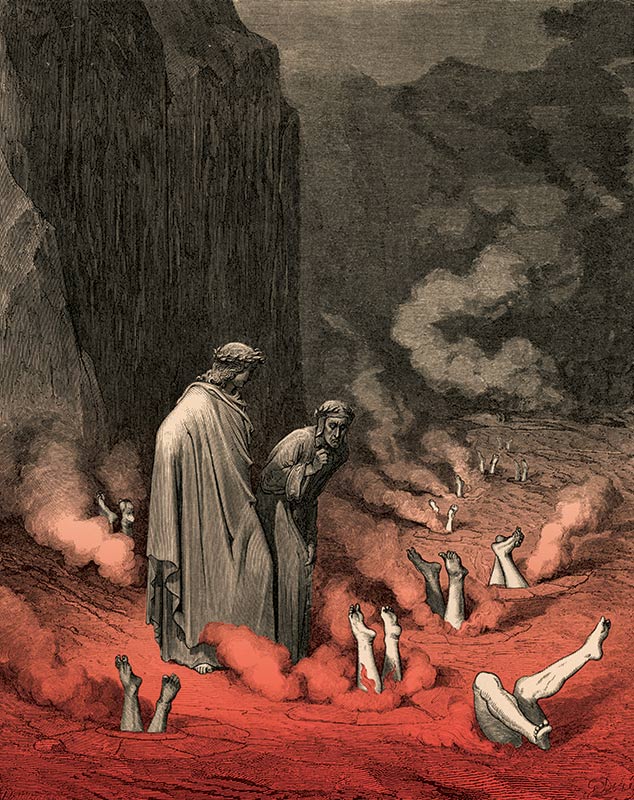Pope Francis, the 266th Pope of the Roman Catholic Church, has been a figure of both admiration and controversy since his election in 2013. Known for his progressive stances on social issues, emphasis on mercy, and outreach to marginalized communities, he has often challenged traditional interpretations of Catholic doctrine. His approach to theology is marked by a pastoral focus, encouraging dialogue and understanding within the Church and beyond.
Among the many topics Pope Francis has addressed, his views on Hell have sparked significant debate. Traditional Catholic teaching posits Hell as a place of eternal punishment for those who reject God's love. However, Pope Francis' remarks suggest a more hopeful perspective, raising questions about the nature of eternal damnation and its implications for Catholic doctrine. This exploration delves into his statements and their potential impact on theological discourse.
Reinterpreting Eternal Damnation
Pope Francis' comments regarding Hell have indeed stirred conversations around the traditional Catholic belief in a place of eternal torment. In a reported statement, the Pontiff seemed to challenge this notion, suggesting instead that Hell might be an empty place. The Vatican has been cautious in clarifying what exactly was said, leading to renewed discussions about the concept of the afterlife within Catholicism.
This reinterpretation invites believers to consider Hell not as a physical location but rather as a state of separation from God. By emphasizing the possibility of Hell being empty, Pope Francis aligns with a more optimistic view held by some theologians, focusing on God's mercy and the hope for universal salvation.
The debate surrounding these statements highlights the evolving nature of religious teachings and the importance of pastoral care in addressing complex theological issues. It encourages Catholics and non-Catholics alike to reflect on the essence of divine justice and compassion.
A New Perspective on Divine Justice
In an interview with an Italian television program, Pope Francis shared insights into his personal thoughts on Hell. He explained that while his reflections are not official Church dogma, they represent a hopeful outlook. This perspective resonates with the teachings of recent popes, including St. John Paul II and Benedict XVI, who also leaned towards a more merciful interpretation of eternal judgment.
By expressing his desire to imagine Hell as empty, Pope Francis underscores the idea of a loving God who extends boundless grace and forgiveness. Such a viewpoint challenges conventional understandings of retribution and eternal punishment, prompting a reevaluation of how divine justice is perceived.
This shift in thinking reflects broader trends within contemporary theology, where emphasis is placed on redemption and reconciliation over condemnation. It invites individuals to contemplate the profound implications of God's infinite mercy in their spiritual journeys.
Clarifications from the Vatican
Following reports of Pope Francis' comments, the Vatican moved swiftly to clarify any misunderstandings. They emphasized that the Pope's words should not be interpreted as a denial of Hell's existence but rather as a reflection of his hope for humanity's ultimate reconciliation with God. Misinterpretations by media outlets were addressed to ensure accurate representation of the Pope's message.
The Vatican's response highlighted the distinction between official Church teachings and personal opinions expressed by the Pope. This clarification aimed to preserve doctrinal integrity while acknowledging the value of open dialogue about sensitive topics like Hell.
Such efforts demonstrate the Church's commitment to fostering understanding and clarity amidst evolving theological discussions. It reinforces the importance of responsible communication in maintaining unity and faithfulness to core beliefs within the global Catholic community.
Hopes for Universal Salvation
Pope Francis articulated his vision during an appearance on a popular Italian talk show, stating that he prefers to think of Hell as empty. This sentiment reflects his conviction in a compassionate God who desires the salvation of all souls. His words carry weight due to his influential position, sparking widespread interest in reconsidering traditional views on eternal damnation.
By voicing this hope, Pope Francis aligns with theological currents advocating for universal salvation. This perspective envisions a world where every individual has the opportunity to experience divine love and redemption. It challenges the notion of exclusionary judgments, promoting inclusivity and understanding in spiritual matters.
This hopeful stance serves as a reminder of the transformative power of faith and the enduring promise of God's mercy. It invites people to embrace a vision of eternity characterized by love, healing, and reconciliation, rather than fear and alienation.

